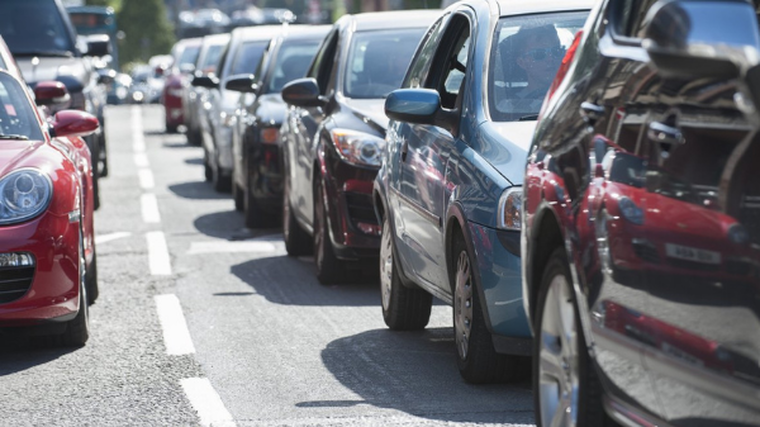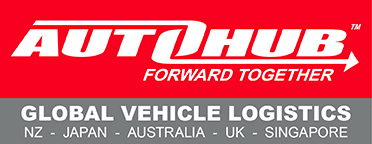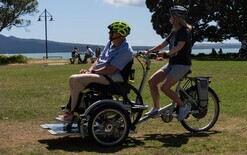Business leaders demand fuel-efficiency standard

A group of 150 business leaders is calling on the new government to prevent New Zealand from becoming a “dumping ground for fossil-fuelled vehicles”.
A briefing, commissioned by the Sustainable Business Council (SBC) and the Climate Leaders Coalition (CLC), urges politicians to work in partnership with business to help hit the country’s zero carbon goal.
Its recommendations on transport include introducing a fuel-efficiency standard for light passenger vehicles and implementing policies to reduce the number of cars on our roads.
The report, entitled Briefing to Incoming Government on Climate Action Priorities, also suggests creating a carbon intensity fuel standard, and reducing or removing the fringe benefit tax (FBT) for corporate battery electric vehicle (BEV) fleets.
It highlights that New Zealand is one of only three OECD countries without vehicle fuel-efficiency standards.
“The consequence of inaction is that the light vehicles imported into New Zealand today are among the most fuel-inefficient across the OECD,” it says.
“In 2019 the Ministry for Transport recommended that a clean car standard be applied to new and used light vehicles entering the NZ fleet. We agree that the government should establish a fuel-economy standard going forward, with reducing targets (supply side), fit for the NZ market, and including measures to mitigate impacts on low-income transport users.
“For light vehicles, we recommend that the government adopts policies and regulations that ensure New Zealand does not become a dumping ground for fossil-fuelled vehicles.”
Targeting emissions
The SBC and CLC members also want to see a scheme that adjusts prices of new vehicles to reflect their emissions contribution “to encourage significant changes in consumer behaviour”.
“The size and nature of new vehicles entering the national fleet is not simply a supply-side issue,” the briefing notes. “They reflect the preferences of consumers, whose needs are determined by a range of considerations that may be unique to NZ.
“Our proposal echoes the Productivity Commission’s recommendation that ‘the government should introduce a price feebate scheme for new and used vehicles entering the fleet, subject to identifying the most suitable design features for the New Zealand context (including features to limit the burden on low-income households)’.”
The briefing’s wish list also includes the government investigating opportunities to further incentivise the scrappage of older vehicles.
“This could include more stringent requirements for warrants of fitness (WOFs) and higher costs for annual licensing of older vehicles. We recognise that there are significant social issues to address in exiting older vehicles from the fleet and that the cost of scrappage and of upgrading to a newer vehicle will be prohibitive for many low-income households.
“The government should consider cash incentives that could be provided for scrappage or for low-income households to trade older vehicles and purchase more fuel-efficient cars.”
Cutting traffic levels
Reducing the number of light vehicles on our roads also comes into focus from the business leaders. They suggest a package of policies is needed to encourage increased vehicle occupancy – such as carpooling, improving the pricing system for transport, introducing congestion charges, and subsidising the purchase and use of e-bikes and scooters.
Another recommendation is to develop a roadmap to accelerate transformation across the fleet and cut emissions from the transport sector.
“We recommend that the government develops an aggressive roadmap to accelerate the transformation of the transport asset make-up, with policies tailored to the type of vehicle (light, medium or heavy) as necessary,” the briefing says.
“As part of this roadmap, we recommend that the government makes a strong, aspirational commitment to the future state of the fleet – we anticipate that a complete transition to a low-emissions fleet by 2035, with a fully renewable fleet by 2045, would be appropriate.
“For light vehicles, the priority should be getting older cars off the road, followed by getting electric vehicles into the fleets and making the choice between ICE and electric vehicles less challenging financially.
“We note that policies aimed at getting older vehicles off the road may place an unfair burden on low income households. The design of measures to achieve this should factor in a just transition.”
‘Collective action’
Karen Silk, chairwoman of SBC’s Advisory Board, says the briefing contains 26 recommendations to accelerate New Zealand’s transition to decarbonisation.
Its measures cover areas such as transport, waste, agriculture and the built environment. The business leaders claim the short-term projects it has put forward, which would cost $7.23 billion, can deliver a 5.5 per cent emissions reduction over 10 years.
The briefing’s three key recommendations are increased investment in low carbon transport, expanding programmes to make process heat more efficient and low carbon, and accelerating the adoption of methane reduction technologies.
“Climate action is critical to our members and signatories, both within their own businesses and through taking collective action to go further, faster,” explains Silk.
“This is a valuable report. It is a consensus view of what the priorities are for the companies represented by SBC and CLC, many of which already have their own transition plans and their own priorities for their emissions reduction plans.”
The briefing was developed following a request from the independent Climate Change Commission for SBC members and CLC signatories to consider what the key climate action priorities are for businesses to deliver on emissions reduction targets to 2050.





